In 2025, navigating the ever evolving landscape of marketing is crucial for success. With numerous platforms available, selecting the right digital media channel or online marketing channel can make or break your strategy. This blog highlights the top nine marketing channels in digital marketing you cannot afford to ignore this year. Each channel offers unique advantages and can significantly enhance your reach and engagement. Understanding these channels and their benefits will empower you to make informed decisions and drive your marketing efforts effectively. Let’s dive into the channels that are set to dominate in 2025.
What Is a Marketing Channel?
A marketing channel refers to the various avenues through which a company promotes and sells its products or services to its target audience. It encompasses the path from the producer to the end consumer, involving multiple intermediaries like wholesalers, retailers, and agents. In essence, marketing channels are the strategic pathways used to deliver value to customers and drive sales. They play a crucial role in shaping how a product is perceived and accessed by the market.
Marketing channels can be categorised into direct and indirect channels. Direct channels involve selling products directly to consumers through company owned stores or online platforms, allowing for greater control over the customer experience. Indirect channels, on the other hand, involve third party intermediaries such as retailers and distributors, which can help expand reach but may dilute control over the brand message. The marketing channel in digital marketing are diverse and include options such as search engines, social media, and influencer partnerships. Here are the top nine online marketing channels you can’t ignore in 2025.
1. Social Media Marketing
Social media platforms are essential digital media channels in 2025. With billions of active users globally, platforms like Facebook, Instagram, LinkedIn, and Twitter provide unparalleled reach and engagement opportunities. Brands can connect with their audience, share content, and drive traffic to their websites.
Leveraging social media marketing involves creating engaging posts, utilising stories and live videos, and tapping into the power of influencers. By tailoring content to the specific platform and audience, businesses can enhance their visibility and build strong customer relationships. Analytics tools help track performance and optimise strategies, ensuring maximum ROI from social media campaigns.
Incorporating paid social media advertising further amplifies reach, allowing precise targeting based on demographics, interests, and behaviours. This targeted approach ensures that marketing efforts are directed towards the most relevant audience, increasing the chances of conversion and customer loyalty.
2. Content Marketing
Content marketing continues to be a powerhouse in 2025. This online marketing channel focuses on creating and distributing valuable, relevant content to attract and engage a target audience. Businesses leverage blogs, videos, infographics, and eBooks to build brand authority and drive customer loyalty.
The shift towards personalised content has made this channel even more effective. By using data driven insights, companies can tailor their content to address specific needs and interests of their audience. This not only enhances engagement but also boosts conversion rates.
Investing in high quality content marketing is crucial for staying competitive. It helps in nurturing leads, building trust, and positioning your brand as an industry leader. Embrace this digital media channel to maintain relevance and achieve long term success in today’s dynamic market.
3. Email Marketing
Email marketing remains a cornerstone of effective digital strategies in 2025. It offers a direct line to your audience, allowing for personalised communication and targeted messaging. With advanced segmentation and automation tools, businesses can craft highly relevant content that resonates with recipients based on their preferences and behaviours.
The rise of AI and machine learning has further enhanced email marketing. These technologies help optimize send times, subject lines, and content, increasing open rates and engagement. Additionally, personalised email campaigns drive higher conversion rates, making it an indispensable marketing channel in digital marketing.
Investing in email marketing platforms that offer robust analytics is crucial. They provide insights into campaign performance, allowing for continuous improvement and better ROI. As privacy regulations evolve, ensuring compliance with data protection laws is also essential to maintain trust and avoid penalties.

4. Influencer Marketing
In 2025, Influencer Marketing continues to be a vital channel, leveraging the trust and connection influencers have with their followers. By collaborating with influencers who align with your brand values and target audience, businesses can achieve authentic promotion and broaden their reach. This digital media channel not only drives brand awareness but also influences purchasing decisions. Whether it’s through social media posts, blogs, or video content, partnering with influencers can amplify your message in a relatable way.
5. Video Marketing
Video marketing remains a powerhouse for engagement and conversion. Its visual and auditory appeal creates an immersive experience, capturing attention more effectively than static content. Platforms like YouTube, Instagram, and TikTok are central to this trend, offering vast audiences and advanced targeting options.
Short form videos are particularly effective, catering to shrinking attention spans and the demand for quick, digestible content. Leveraging these platforms for product demos, tutorials, and behind the scenes footage can significantly boost brand visibility.
Interactive video content, such as live streams and shoppable videos, is gaining traction. These formats not only engage viewers in real time but also drive immediate actions, such as purchases or sign ups. Investing in high quality video production and engaging storytelling is crucial to stand out in a crowded online marketing channel environment.
6. Search Engine Optimization (SEO)
Search Engine Optimization (SEO) remains a cornerstone of marketing channels in digital marketing strategies. As search engines evolve, SEO practices must adapt to maintain visibility and relevance. Optimising your website for search engines ensures that your content reaches the right audience.
Key SEO techniques include keyword research, on page optimization, and quality content creation. Focusing on long tail keywords and semantic search helps improve your site’s ranking. Additionally, enhancing user experience with fast load times and mobile responsiveness is crucial.
7. Offline Events
Offline events are making a strong and impactful comeback in 2025, offering brands a unique opportunity to create tangible, face to face connections with their audience in ways that purely online interactions often cannot replicate. In a world where almost every touchpoint has shifted to a digital media channel, the return of in person experiences is both refreshing and strategically valuable for marketers seeking deeper engagement.
Events such as trade shows, industry conferences, product launches, pop up stores, and local community meetups allow for authentic, direct interaction between brands and consumers. These physical gatherings provide a platform for meaningful conversations, live demonstrations, and personal networking that foster trust, loyalty, and long term relationships. While a digital media channel can efficiently deliver information and connect people virtually, the emotional and sensory impact of offline experiences remains unmatched.
One of the main advantages of offline events in a digital media channel dominated landscape is their ability to cut through the noise. With consumers being bombarded daily by social media ads, influencer promotions, and online campaigns, a well organized in person event stands out as a memorable experience. Attendees can touch, feel, and test products, engage directly with brand representatives, and provide instant feedback all of which can significantly influence purchasing decisions.
8. Community Marketing
Community marketing is more than just a promotional tactic it’s a long term relationship building strategy that focuses on creating, growing, and nurturing a loyal customer base through meaningful engagement and consistent support. Unlike traditional advertising methods that primarily push messages outward, community marketing thrives on two way interactions, making customers feel valued, heard, and connected to the brand’s mission.
In 2025, as competition intensifies and consumers demand authenticity, brands are increasingly recognizing the immense potential of community driven initiatives. Leveraging an online marketing channel for community marketing allows companies to create dedicated spaces where like minded individuals can interact, share experiences, and offer feedback. These communities can exist on platforms like Facebook Groups, LinkedIn Communities, brand owned forums, or even private membership portals, providing customers with a sense of belonging.
The true power of a community driven online marketing channel lies in its ability to foster brand advocacy naturally. When customers feel genuinely connected to a brand, they are more likely to recommend its products or services to friends, family, and peers generating organic growth that no paid ad campaign can easily replicate. In these online spaces, brands can address concerns in real time, crowdsource ideas for new products, and showcase customer success stories to inspire others.
9. Search Engine Marketing
Search Engine Marketing (SEM) remains a crucial component of marketing channels in digital marketing. In fact, when we talk about the different ways businesses can reach their audience online, one of the most result driven marketing channel in digital marketing are paid search campaigns, commonly known as SEM. By leveraging targeted paid advertising on search engines like Google and Bing, businesses can position their products and services at the very top of search results, right when potential customers are actively searching for relevant keywords.
This makes SEM a highly effective method for capturing high intent traffic people who are already interested in what you offer and are more likely to take action, whether it’s making a purchase, signing up for a service, or requesting more information. The marketing channel in digital marketing are especially impactful in competitive industries, where organic search rankings alone might not be enough to secure visibility.
A strong SEM strategy involves more than just running ads. It includes comprehensive keyword research to target the most profitable search terms, crafting compelling ad copy to entice clicks, setting appropriate bid strategies, and optimizing landing pages for conversions. The integration of AI and machine learning in ad platforms has further enhanced SEM by enabling more precise targeting, real time bid adjustments, and personalized ad experiences that resonate with specific audience segments.
How to Choose the Right Marketing Channel for Your Business
Selecting the right marketing channel in digital marketing are critical for ensuring that your message reaches the right people, at the right time, and in the right way. With so many options available from social media and content marketing to SEM and offline events your choice will directly impact your visibility, customer engagement, and overall ROI.
Factors to Consider: Audience, Budget, and Goals
- Audience – Start by understanding your ideal customers. Where do they spend their time online? What platforms do they trust? If your audience is highly active on Instagram and TikTok, visual and interactive channels like social media marketing and video marketing will work best. For B2B audiences, LinkedIn and email marketing may be more effective.
- Budget – Your available resources will influence which marketing channel in digital marketing are realistic for you. Paid advertising channels like SEM, influencer marketing, and sponsored social posts often require larger budgets, while organic strategies such as SEO and community marketing may take more time but can be cost effective in the long run.
- Goals – Define your primary objectives. Are you aiming for brand awareness, lead generation, or direct sales? For example, if your goal is immediate conversions, SEM or targeted social ads may deliver quick results. If you want to build long term loyalty, content marketing and community engagement might be the best fit.
By aligning audience insights, budget limitations, and measurable goals, you can confidently narrow down your options and focus on the marketing channel in digital marketing are most likely to deliver the outcomes you want.
Integrating Multiple Channels for Maximum Impact
While each channel has its strengths, the most successful marketing strategies combine several digital media channels to create a powerful, interconnected presence. This is known as an omnichannel approach.
For example:
- Use SEO to attract organic visitors.
- Retarget those visitors with SEM campaigns.
- Nurture leads through email marketing.
- Keep your brand top of mind with social media content.
When channels work together, they reinforce each other ensuring that customers encounter your brand multiple times across different touchpoints. This repeated exposure builds trust, improves engagement, and increases the likelihood of conversions.
Final Thoughts
In 2025, the success of your marketing strategy depends on how effectively you select and integrate the right channels. The most impactful marketing channel in digital marketing are those that not only reach your audience but also resonate with them on a deeper level. Whether it’s the immediacy of social media, the trust built through community marketing, the visibility gained from SEO and SEM, or the storytelling power of video, each channel plays a unique role in driving growth.
Rather than relying on a single approach, the key lies in creating a balanced, data driven mix of digital media channels that complement one another. By staying agile, continuously testing, and adapting to changing consumer behaviors, businesses can ensure their online marketing channels remain relevant and competitive. The brands that embrace innovation, authenticity, and multi channel synergy will be the ones that stand out, connect, and thrive in today’s dynamic digital marketplace.
Ready to take your brand to the next level? Connect with us today to explore how HT Media can amplify your presence across our diverse portfolio of 25+ brands and properties. Let's turn your brand vision into reality!


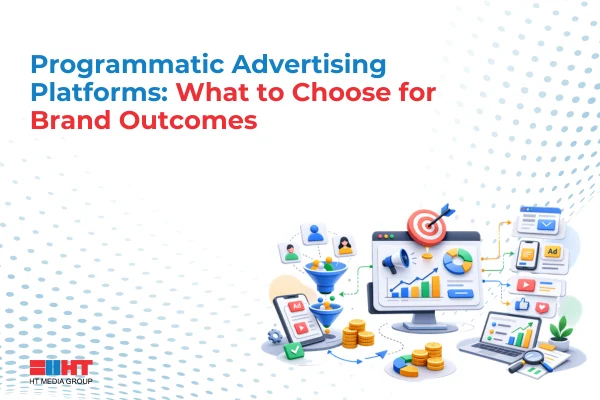
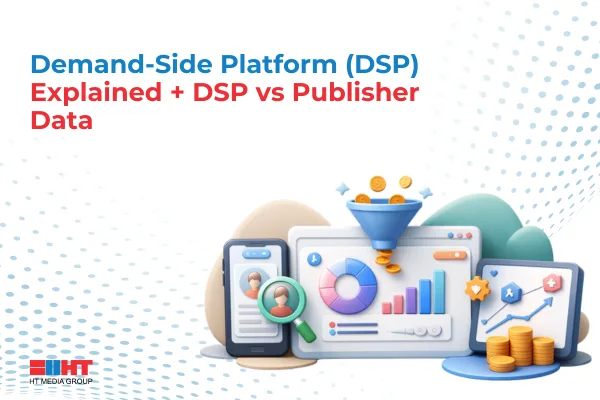




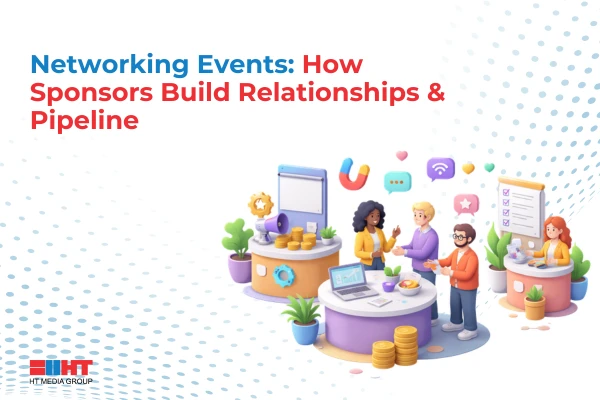

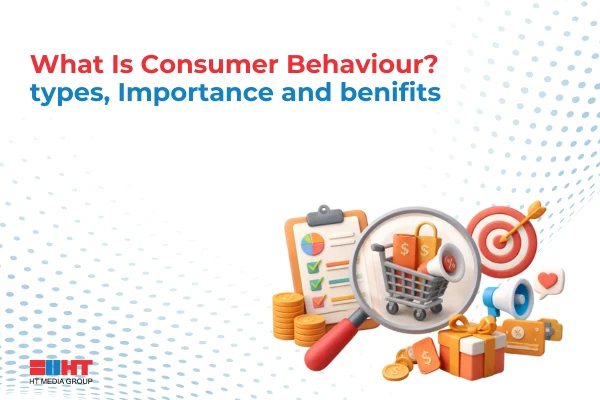
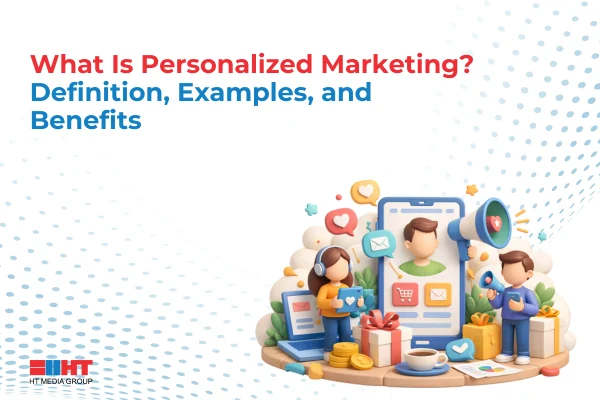
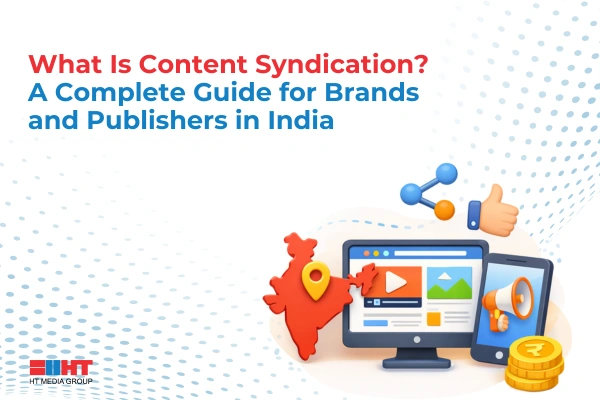



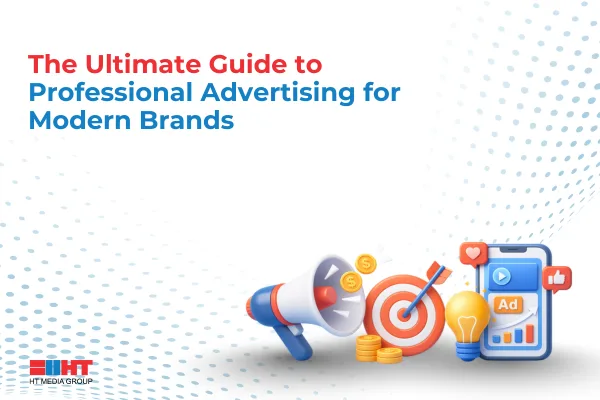

Comment